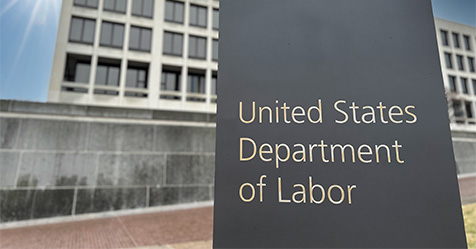The labor landscape after the pandemic has largely favored workers, which is great for company culture and even better for employees. As a result of the Great Resignation and the labor shortages that followed facility shutdowns and transitions to remote work, many employers are reevaluating their culture to determine how they can attract and retain top talent.
While employees are learning how to trust again, their employers are learning how to build loyalty in this new work world. Employers want people to stay at their companies, and often go to great lengths to make sure that they do!
How can businesses appeal to the workers who are burnt out on working hard with little recognition outside of the occasional office pizza party? By implementing recognition strategies they can create a company culture that supports meaningful connections between employer and employee, reducing turnover and increasing trust.
Solicit and listen to feedback
Despite how obvious it may sound, sometimes leaders just need to start listening. They need to hear what employees are saying about their jobs, their managers, and their peers. Although idle gossip should not be encouraged, thoughtful opinions are always worth considering.
One way to achieve this goal is to solicit ideas from employees on how to improve the workplace. Surveying your team members should not simply be performative (employees can see that coming from a mile away). Survey them in a way that makes them feel their feedback is heard and appreciated. Not only does this give you an idea of what may need to be changed within your organization, but your employees will know that their ideas and opinions are valued.
Be transparent
As an employer, you cannot build trust if you are keeping employees in the dark, especially regarding issues that will affect their place in the company or their working environment. When things are happening within the organization, you can almost count on the rumor mill picking up on rumblings. Transparency and honest communication are important factors in building a culture of trust, and will help squash any harmful rumors as well.
Remember to keep employees informed about changes, plans, goals, and your expectations for them and the team as a whole. At the same time, keep your door open—both literally and figuratively—and make it known that you are willing to hear thoughts from your team, both the good and the bad.
Foster trust with direct recognition
Businesses can build a culture of trust and loyalty by regularly and effectively recognizing employees. In a recent employee survey, 81.9% of respondents agreed they felt more engaged with their work if they received regular recognition.
When employees feel fulfilled within their roles and recognized by their peers and company leadership, they are more committed to their employer and driven to do good work. Employees work best when they feel connected to their employer and team workers, and grounded to their positions.
Create recognition programs that are personalized, timely, and specific. Employees want specific recognition for the unique skills they bring to the table. According to Forbes, the simple sense of feeling that the work you do provides to the greater good of the company contributes to an average 43% increase in retention and an 84% increase in estimated employee tenure.
Recognition programs also come in handy for reinforcing expectations. Positive affirmation of a job well done can show other team members what they can expect when they reach their goals, and can lead to a collaborative effort to improve across the entire team.
Employers can implement recognition initiatives and weave them into their organization’s day-to-day operations. Once people come to expect that their hard work will be noticed, increased productivity and reduced turnover will naturally follow.
Focus on your employees
Employee recognition programs have evolved quickly, becoming more integral to the successful running of a business. Employees want to feel appreciated and connected to their colleagues and organization. To build authentic trust and loyalty, business leadership must be intentional in openly communicating with, actively listening to, and consistently recognizing their employees for a job well done.
In today’s working world, employees are seeking positions that fulfill them far beyond a simple paycheck. By leaning into the new employee-centric work landscape, leaders can build a culture that supports loyalty and trust to create more successful outcomes for everyone.




